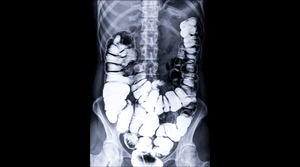Where Has All the Medtech Venture Capital Gone?
February 7, 2013
Venture capital (VC) funding in the biotechnology and medical device sectors fell in 2012, dropping 14% in dollars and 7% in deals. In absolute numbers, according to a new report from PricewaterhouseCoopers LLP and the National Venture Capital Association, VC investments totaled $6.6 billion in 2012, down $1.1 billion from 2011. And while 836 VC deals were struck in 2011, there were only 779 last year. But that's not all. The report's most noteworthy finding is that first-time VC funds went to only 135 companies last year, the lowest level since 1995.
The silver lining in the grey cloud is that compared with the third quarter of 2012, life science VC funding rose 11% in Q4, growing to $1.9 billion. Deal volume also increased, growing 12% percent to 187 deals compared with the previous quarter.
In the medical device segment proper, the dollar amount of investments fell 13% percent in 2012, while deals fell by 15% percent. Thus, $2.4 billion in VC funding was pumped into 313 deals. All three medical device subsegments recorded a decline in funding in 2012. The medical therapeutics subsegment captured most of the investments, accounting for 80% of the dollars and 61% of the deals. This subsegment was the only medical device area to experience an increase, expanding 65% over the previous quarter to $520 million.
"Several recent developments bode well for the life sciences sector when it comes to venture investing during 2013," remarks Tracy T. Lefteroff, global managing partner of the venture capital practice at PricewaterhouseCoopers US. "Product approvals at the FDA reached a 16-year high for the calendar year 2012. Products targeting critical unmet needs are getting approved, and at a quicker pace. And with the renewal of the user fee legislation last year came several improvements to the regulatory process that should start yielding greater efficiency.
However, significant challenges remain, Lefteroff says. "The time and cost and uncertainty of new product development have increased substantially over the course of several decades, and the willingness of healthcare systems in the U.S. and around the world to pay for innovative new products is an area of concern for the future. Despite the challenges, venture capitalists will continue to seek out the most innovative companies with the business models and products to meet the growing demand for better health outcomes and higher value to the healthcare system."
If you'd like to read more about venture capital investments in the medical device industry, check out these stories:
What's Behind the Flurry of Medical Device M&A Activity?
About the Author(s)
You May Also Like


